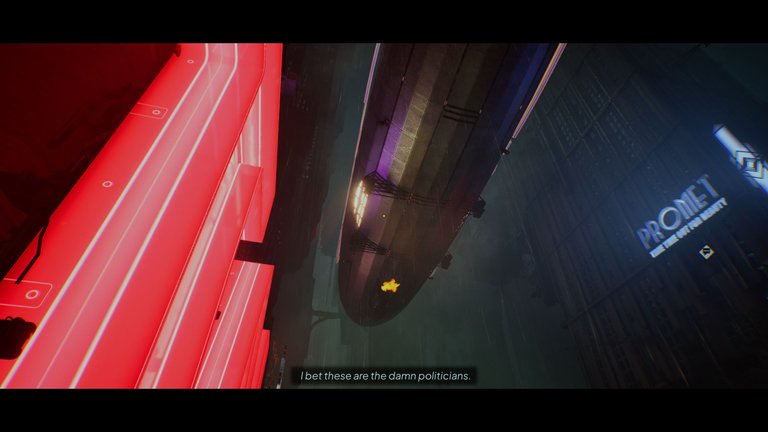(A Visual Noir Story) Nobody Wants To Die
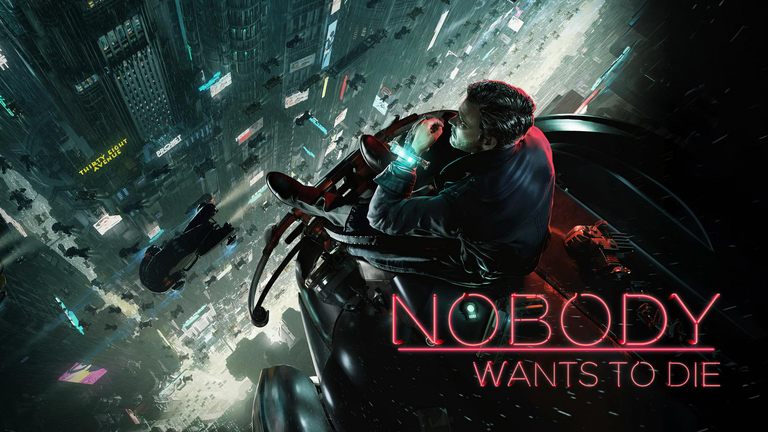

Ah yes, graphics demo based walking simulators, those are the type where we gawk at the pristine, incandescent graphical fidelity, and all we have to do was do nothing much in terms of mechanics as hand-holding is present most of the time. That was the case years ago.
Nowadays, you can have sort of both, since studios have ridiculous budget to create their projects. This game is a double-A UE5 project from a newcomer studio. But I actually didn't mind how mechanically it wasn't providing thought-provoking gameplay challenges, but rather use them to tell its story, woven the way it wants to. I'm also a sucker for post-modernism in future timelines.
In 2329, in another world where the prohibition era never went away, and nuclear war didn't destroy everyone, but people deal with so many existential crises. Especially ones regarding body transfers, and how no one can die as they wish. Cursed to live for eternity, no thanks to their government.
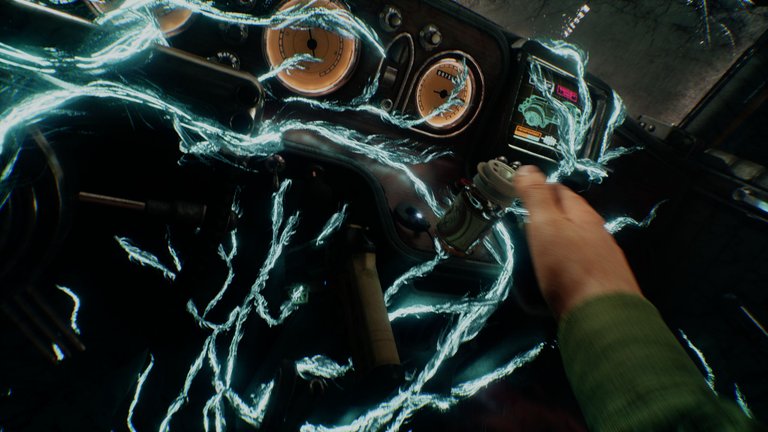
Jason Karra was just sitting in his car, watching a drive-by classic film with his wife. For a small brief period, everything was serene, nice till he started spazzing out and took his drugs. She wasn't there anymore, the daydream I think fades away, sad reality sets in.
Welcome to the Neo-Noir future of New York, flying cars, posters, hyper-capitalism, president taking away human rights, and detectives working for the top dogs of it all. But not our Jason, no, he has a flair for good ol'fashioned police work. There's a lot of story exhibition, background stuff being given out, as a way to establish history, which is important for decision-making later.
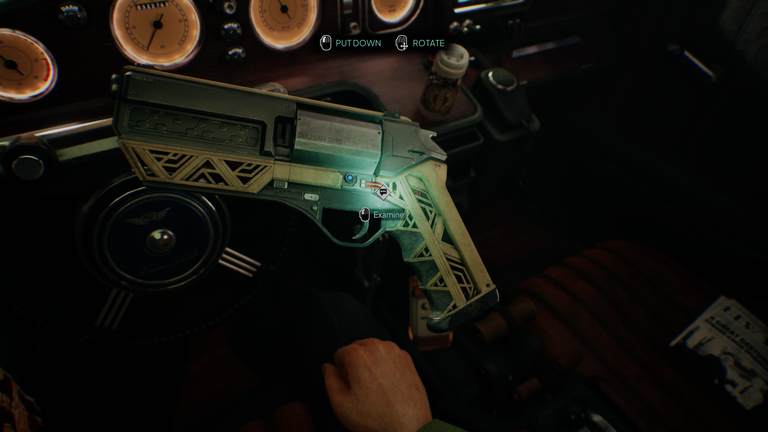
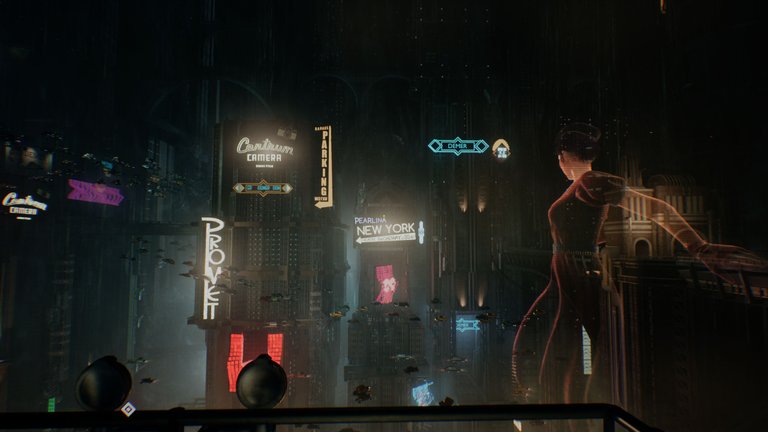
Even for a visual eye-candy, the city and its surrounding has so much touch of detail, it draws any curious mind and people fond of noir detective stories set in the future. New York with flying cars, and constant raining has never looked dredging sad with ill contempt.
It's an interactive walking simulator too, when I'm not investigating a crime scene, I'm taking interest in looking around. Everything in the car was interacted, from the gun, the Ambrosia drugs, photos, almost every bit of these items have crazy attention to detail. It probably means Epic was really curious what their new engine would look like, and provided funding. They got their work cut out for them, but this is nothing compared to what happens when I get to the crime scene.
And my case takes me to Mr. Green's house, the founder of the Ichorite and body switching program, who also worked with the president himself to make sure that it's mandatory to do so, and only free for people of young age. Yeah, not exactly a good proposal, but there's no such thing as an ideal world. Also, turns out his Ichorite which was supposed to be retrieved was fried. He's dead.
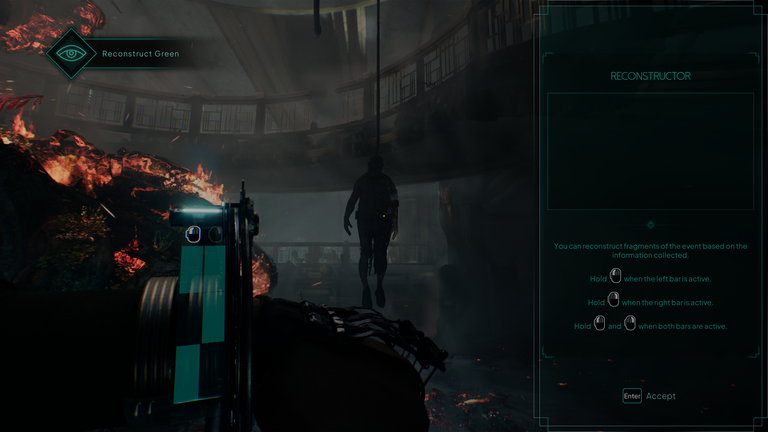


The first mechanic I had to work with is the Reconstructer, which, either chronologically, reverts an area back to its prior state in time or this is a simulated look. Which looks amazing since every particle effect, texture, and environment change transitions and alters smoothly. Entering the yellow zone for follow-up clues, as well as finding more to piece the narrative.
For a curated experience, you get all the right bells and whistles of information through so much dialogue, decision-making, analyzing the scene, and the tech gizmos available to use. For a guy who played detective games, this one has my seal of approval due to how well it plays out.
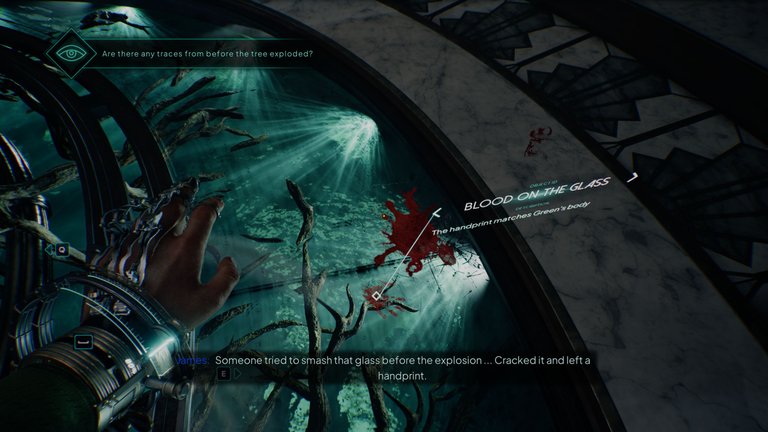
It drip feeds you with everything it can about the world, people are miserable, they have to pay subscriptions after winning bids for every body to transfer their conscious, with the Ichorite. It involves being in debt all the time, unless you're stupidly rich and have so much financial leeway.
Is gameplay involved in finding those out? Yes, in this crime scene, there's so many things to look at. The constitutional law, the original draft signed and ratified about the body transferring, last peach tree in Green's house burning away, some of the stuff he puts away like old chocolate, put in a shell to slow down aging. It's so telling.
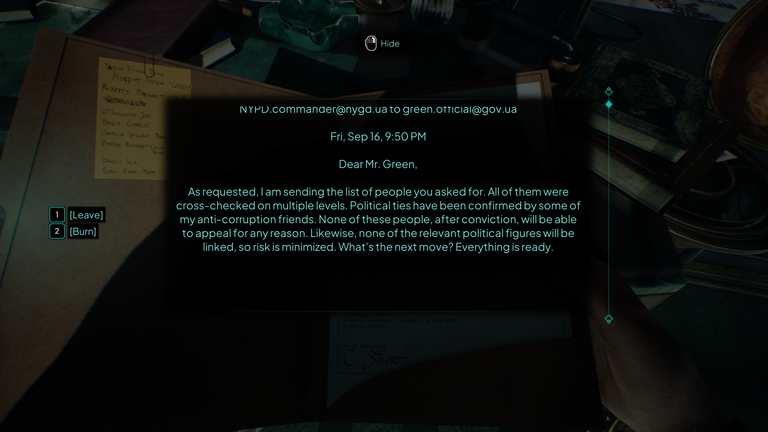
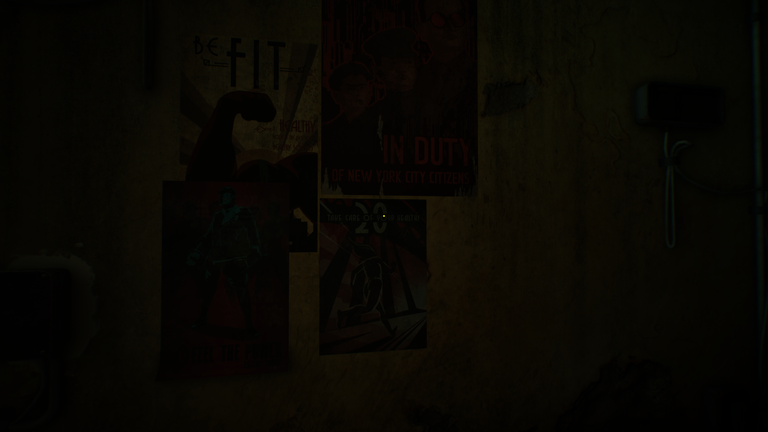
Oh yeah, some of the dialogue choices do factor in unlocking story branches, like the part where I found every corrupt affiliates Green had in a document, and chosed to burn it instead of keeping to myself. Which was obviously something the chief of police favored, his old pal keeping his lights on, and body going while the dude sneaks himself a few contraband.
I ain't judging a guy, this world looks super bleak as it is, plus the whole dead wife thing he's dealing with and living several centuries, misery really loves company. You can thank the writing for that, as well as the visual storytelling. After getting out of hell, I walked through the halls of the floor of his apartment, seeing propaganda posters before seeing graffiti the walls saying "Gives us our bodies back". It's not profound, but it does hit.
As well as the anachronistic art style, actual attention to the detail. How gameplay accompanies the experience. Did I mention this was made by a Polish developer? Those guys might as well be the biggest European videogame markets out there right now.
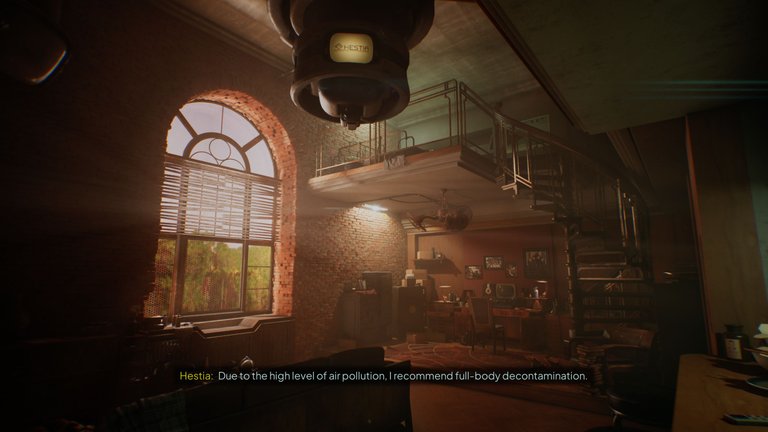

I'm already 1hr 30mins in, after that, I had to put all the clues together with this mini-game, which works, but disappointed it didn't really provide much challenge with it. I can't deny the impact it has though, when it comes to the storytelling, it does it so well, and playing one in a setting such as this is really rare. God, I miss playing Deus Ex so bad.
I didn't do this post justice, because there's many more to go through. The airship going through the city has a bar, and it caught on fire. Queue another crime scene, and I sadly stopped from here. Play this one when you get the chance, you won't be disappointed.
